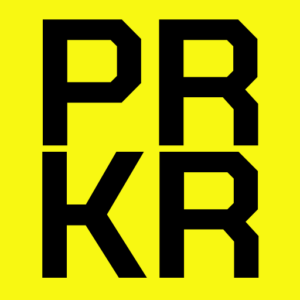When you think about press inquiries, you might picture journalists chasing down stories, but it’s more nuanced than that. A press inquiry is essentially a request for information, and understanding how to navigate these can significantly impact your media relationships. You’re not just responding to questions; you’re shaping perceptions and building credibility. So, what does it take to handle these inquiries effectively? The answer might surprise you, especially when you consider the common pitfalls that many fall into.
Understanding Press Inquiries

When you think about press inquiries, it’s all about understanding the requests that journalists make and why they matter for your business.
These inquiries can range from needing product images to seeking expert insights, all aimed at boosting your brand’s visibility.
Recognizing their importance can help you leverage these opportunities for greater media exposure and credibility.
Definition and Types of Press Inquiries
A press inquiry is a request from journalists seeking specific information, products, or insights to support their stories or features. When you receive such an inquiry, it’s crucial to respond to a press inquiry promptly and accurately. This not only helps journalists gather information but also strengthens your media relations.
Press inquiries can vary widely in their types. Some might ask for product images, while others could seek expert comments or personal anecdotes. Understanding the angle of the inquiry allows you to provide the most relevant resources. Always adhere to any guidelines provided, as this can enhance your credibility and improve your chances of being featured.
If a journalist is looking for insights on a particular topic, analyze the request carefully to ensure your response aligns with their needs. Building a good relationship with media personnel is essential; timely and thoughtful replies can turn a one-time inquiry into ongoing collaboration.
Importance of Press Inquiries for Businesses
Responding to press inquiries not only boosts your media exposure but also significantly enhances your brand’s reputation.
When you engage with journalists and influencers, you create opportunities that can lead to authentic endorsements, ultimately benefiting your advertising efforts.
Here are three key reasons why press inquiries matter for your business:
- Increased Credibility: By addressing press inquiries accurately and promptly, you position your brand as trustworthy. This enhances your reputation over self-promotion.
- Broader Reach: Effective communication through press inquiries can expand your audience, reaching potential customers who mightn’t be aware of your brand.
- Relationship Building: Responding positively to inquiries fosters long-term relationships with media professionals. This can lead to future collaborations and features.
How to Respond to Press Inquiries

When you receive a press inquiry, the first step is to carefully review it to understand what’s being asked.
Then, conduct some research to prepare a tailored response that aligns with the media outlet’s audience.
Initial Review of the Inquiry
Carefully reviewing the inquiry is crucial to grasp exactly what’s being requested and to tailor your response effectively. When you receive a press inquiry, take a moment to read the request carefully and confirm that you understand the key points. This will help you get started on crafting a relevant and compelling reply.
Here are three vital steps to follow during your initial review:
- Identify the Criterion: Determine what the journalist specifically wants. Are they looking for product images, expert quotes, or samples?
- Assess Deadlines: Take note of any time constraints mentioned. This ensures you respond promptly and respect their timeline.
- Gather Additional Information: If the inquiry lacks details, think about what else you might need to enhance your response. Communicate clearly about your capabilities and any limitations.
Staying calm and focused during this stage is essential. By ensuring you fully understand the request, you’ll enhance your chances of a favorable outcome.
Research and Preparation
Researching the journalist or outlet making the inquiry is crucial for tailoring your response effectively.
Start by examining the journalist’s profile and past work. This helps you understand their style, interests, and the topics they cover. Look for trends in their articles or commentary that align with your brand or product. This insight will guide your response to resonate with their audience.
Next, research the media outlet itself. Familiarize yourself with its readership, editorial stance, and typical content. Understanding the outlet’s tone will help you frame your response in a way that’s appropriate and engaging.
If the inquiry comes from bloggers or influencers, check their follower engagement and past collaborations. This can give you an idea of their influence and how your brand might fit within their narrative.
In preparation, gather any relevant information or materials that could enhance your response. This includes high-quality images, product details, and background information. Being well-prepared not only shows professionalism but also increases your chances of a favorable outcome from the inquiry.
Crafting Your Response
A well-crafted response to a press inquiry is essential for making a positive impression and increasing your chances of media coverage. To ensure your response is effective, follow these key steps:
- Be Prompt: Responding within a few hours shows you’re professional and value the journalist’s time. Timeliness can be a deciding factor in whether your information gets included.
- Include Relevant Information: Provide all necessary details, such as product specifications, images (up to five), and any user agreement if applicable. This saves the journalist from having to ask for more information later.
- Maintain a Polite Tone: Use a respectful and friendly tone, even if the inquiry is anonymous. Building rapport with influencers and journalists can lead to future opportunities.
Using a template can streamline your response process, ensuring you don’t miss any important elements.
Follow-up Practices
Following up on press inquiries can be tricky, as it often depends on the context and the journalist’s timeline. If you’ve sent a response and haven’t heard back within a week, it might be appropriate to send a polite follow-up. This shows your continued interest without overwhelming their inbox.
However, if the inquiry was time-sensitive, and you’ve missed their deadline, it’s best to refrain from following up.
In scenarios where you’re waiting for a significant decision or input from a senior team member, consider following up after a reasonable period. Just remember to keep it concise and respectful.
When you do send a follow-up, make sure to reiterate your initial response briefly and express your willingness to assist further. This gives the journalist a chance to revisit your earlier correspondence without sifting through multiple emails.
If you don’t receive a response after your follow-up, it’s best to move on. Journalists are often busy, and not every inquiry will lead to coverage. Focus on nurturing relationships and staying prepared for future inquiries.
Common Mistakes to Avoid in Press Responses

When responding to press inquiries, missing key details can hurt your chances of making a good impression.
Delayed responses not only signal disinterest but can also lead to lost opportunities for coverage.
Let’s explore these common mistakes and how you can steer clear of them.
Overlooking Details
Missing critical details in press requests can lead to inadequate responses that undermine your chances of a positive media relationship. When dealing with a press inquiry, it’s essential to focus on the specifics. If you overlook key elements, journalists might think it’s easier to pull their requests elsewhere, which they certainly deserve.
To avoid this, make sure you pay attention to these critical details:
- Deadlines: Always check the timeline. Responding late can mean missing out on coverage.
- Specific Requests: Understand what the journalist is asking for. Whether it’s product images or expert quotes, ensure your response aligns with their needs.
- Format Requirements: Different newspapers and media outlets may have specific formats for submissions. Make sure you adhere to these to avoid unnecessary back-and-forth.
Delayed Responses
Delays in responding to press inquiries can jeopardize your chances of securing valuable media coverage and damage your relationships with journalists. If you want to make sure you’re seen as reliable, quick responses are crucial.
Here’s the thing: when you take too long, journalists might think you’re not interested, and they could move on to other sources. You’d be surprised how easily a simple oversight can lead to missed opportunities. They’re often working under tight deadlines, and if you don’t need to delay your response, don’t.
You’ll not only enhance your reputation but also strengthen the connection with the media. Consider using an app to track inquiries and deadlines so you can respond promptly. This way, you can avoid annoying journalists with follow-ups that show you’re out of touch.
Leveraging Press Inquiries for Strategic Advantage

Leveraging press inquiries can significantly boost your media relationships and exposure.
By responding effectively, you not only enhance your credibility but also create opportunities for future collaborations.
This strategic approach can elevate your brand’s visibility and strengthen your presence in the market.
Building Media Relationships
Building strong media relationships hinges on your ability to respond professionally and helpfully to press inquiries, fostering trust and collaboration with journalists over time. By nurturing these connections, you can create a network that benefits both your brand and the media.
Here are three key strategies to enhance your media relationships:
- Timely Responses: Always respond promptly to inquiries. Quick replies demonstrate your commitment and reliability, making journalists more likely to reach out in the future.
- Tailored Communication: Personalize your responses based on the journalist’s previous work and interests. Show that you’ve done your homework—this not only builds rapport but also increases the chances of your content being featured.
- Follow-Up and Feedback: After an inquiry, follow up to ensure the journalist received all necessary materials. Solicit feedback on your response and be open to suggestions for improvement, reinforcing your willingness to collaborate.
These practices can turn one-time inquiries into lasting relationships that yield ongoing opportunities for visibility and credibility in your industry.
Cultivating these connections will pay dividends in the long run.
Maximizing Media Exposure
Maximizing media exposure through strategic responses to press inquiries can significantly enhance your brand’s visibility and credibility in the industry.
To leverage press inquiries effectively, respond promptly and tailor your message to align with the journalist’s needs. This means understanding their publication and audience, ensuring your response is relevant and impactful.
Make sure to include all necessary information and high-quality images, and stick to any specific guidelines provided by the journalist. By doing so, you position yourself as a reliable source, increasing the likelihood of being featured.
Additionally, view each inquiry as an opportunity to build lasting media relationships. Engaging thoughtfully with journalists can lead to future inquiries and collaborations, further amplifying your brand’s reach.
Don’t underestimate the power of follow-up; a brief thank you note can leave a positive impression.
Lastly, consider using PR platforms that connect you with a broader network of media professionals, streamlining the process of gaining exposure. By proactively managing your press inquiries, you not only enhance immediate visibility but also lay the groundwork for sustained media engagement.
Conclusion
In conclusion, understanding and effectively handling press inquiries can significantly enhance your brand’s visibility and credibility.
By responding promptly and accurately, you not only build strong media relationships but also position yourself as a trusted source of information.
Avoid common pitfalls, and leverage these opportunities to showcase your expertise.
Embrace the power of press inquiries to gain a strategic advantage in your industry, ensuring you stay relevant and engaged with your audience.


